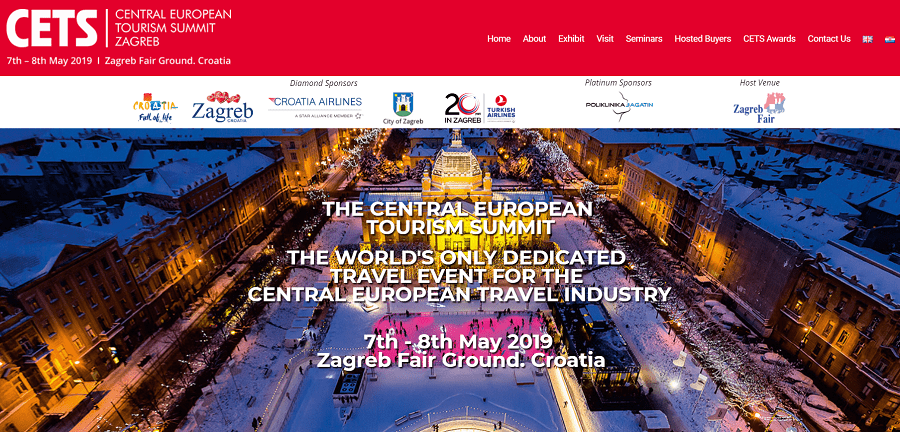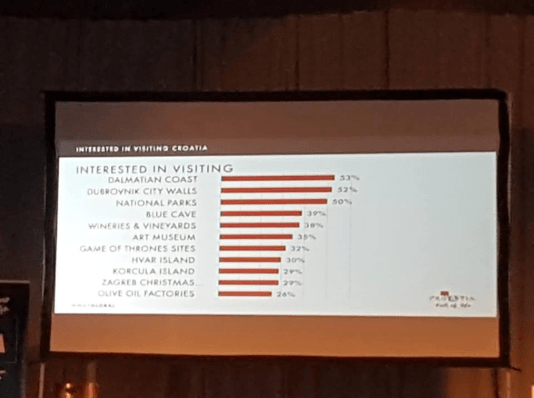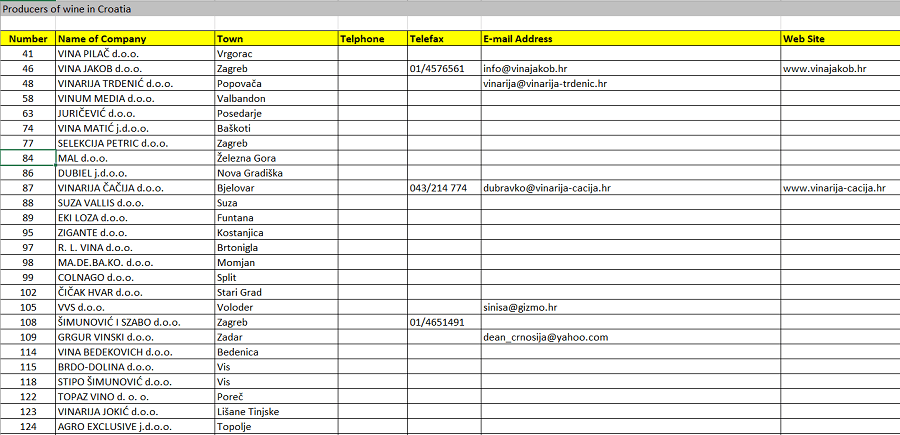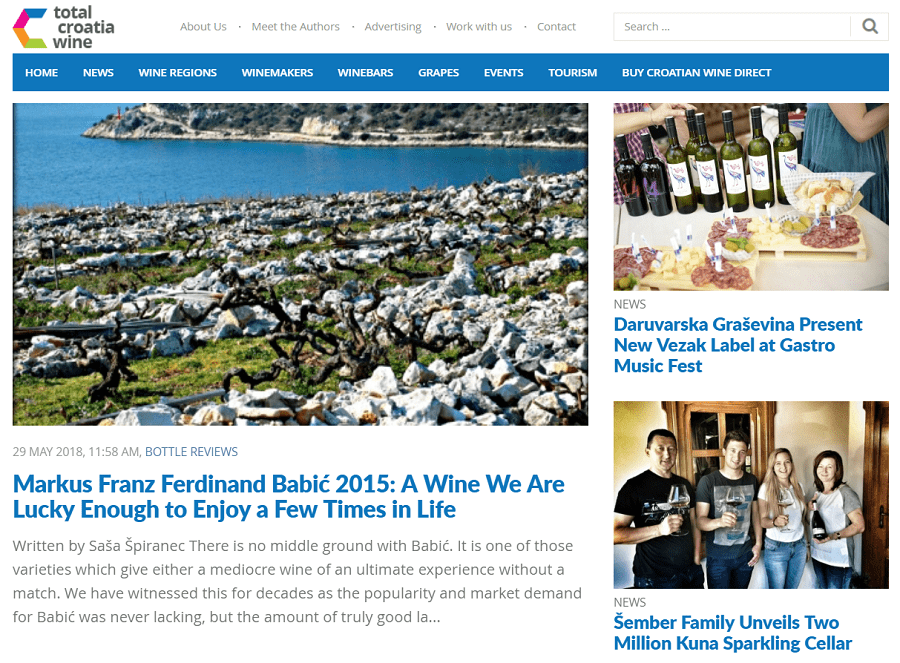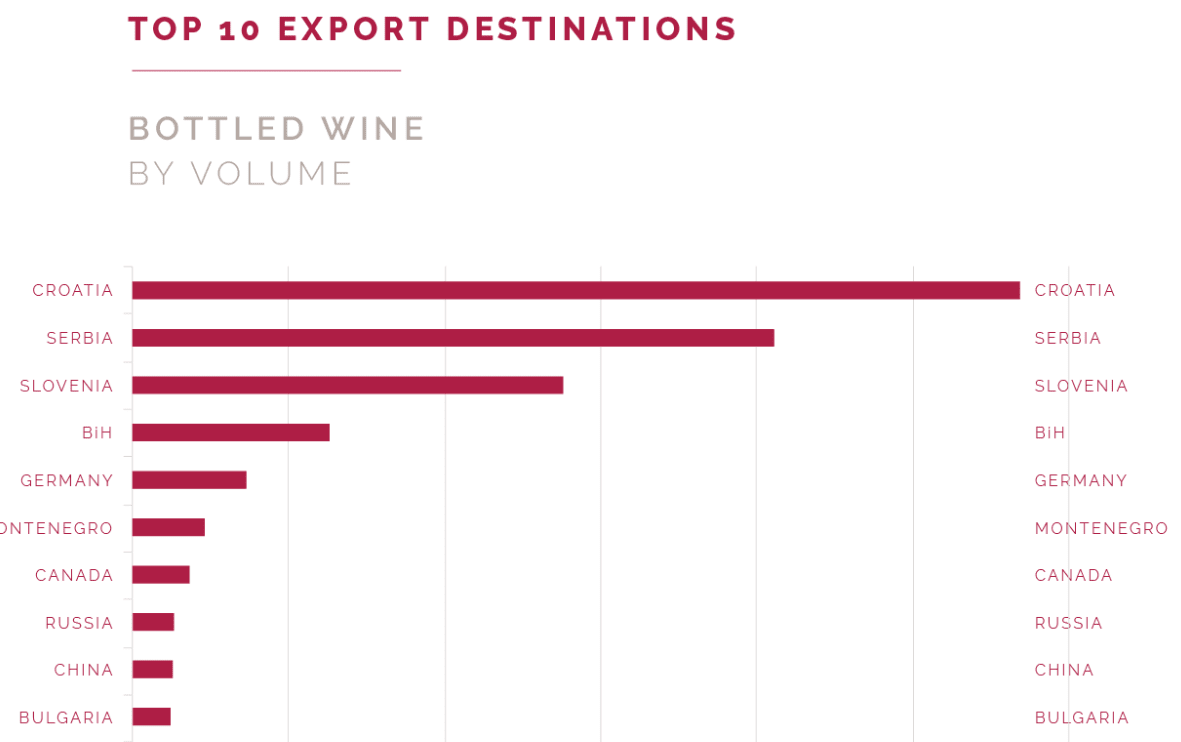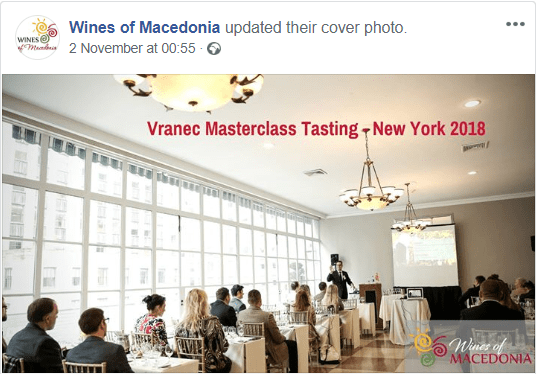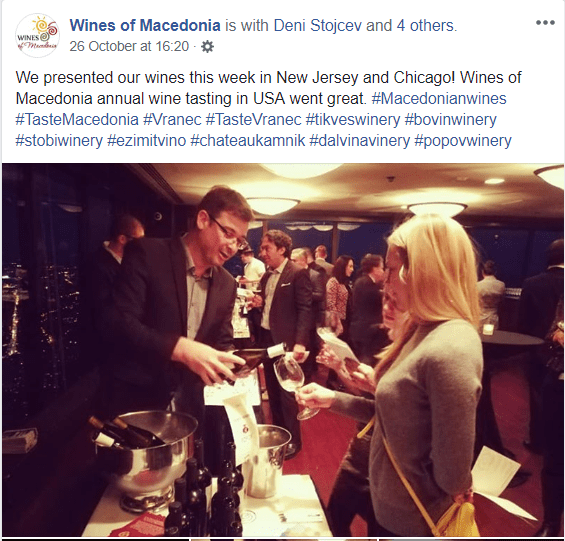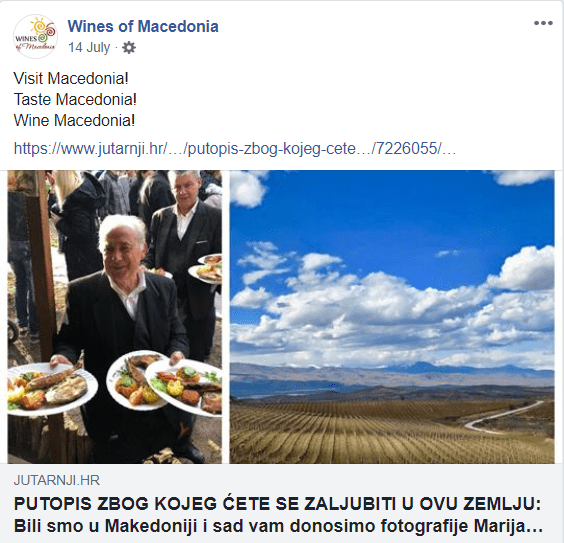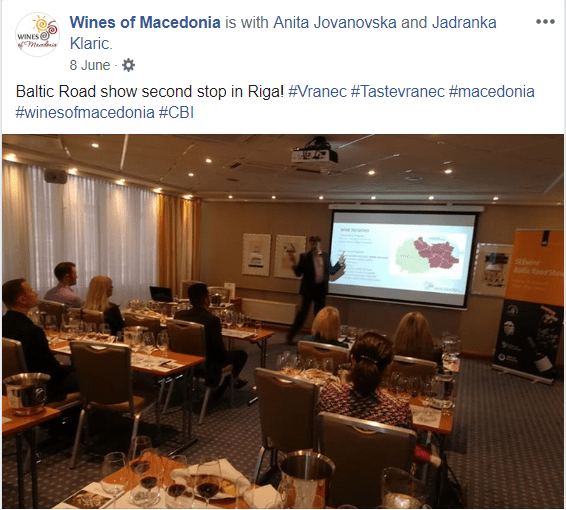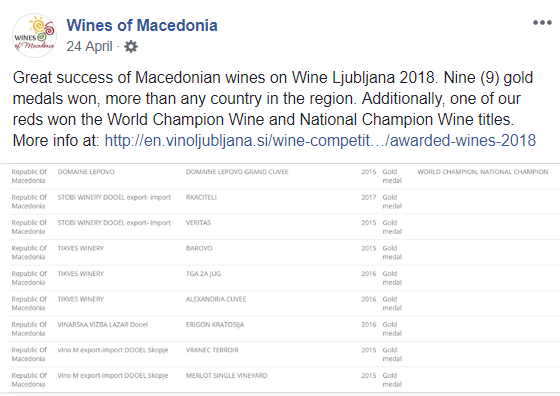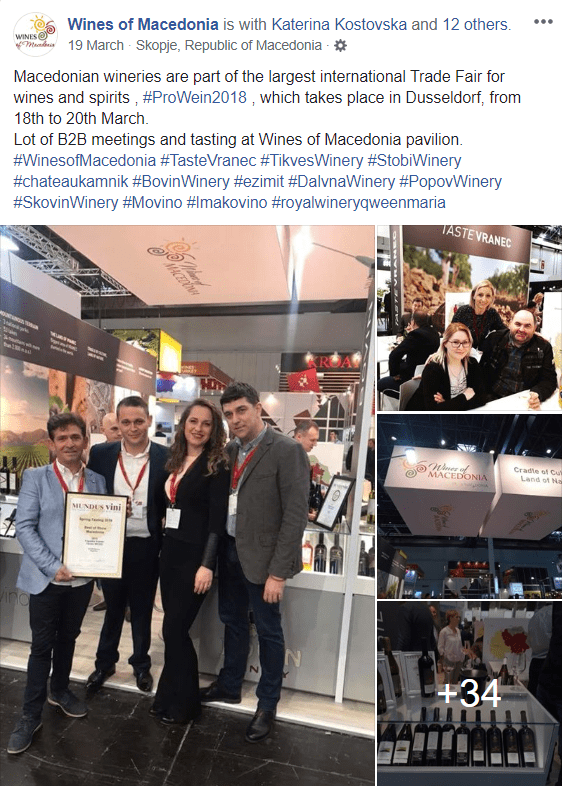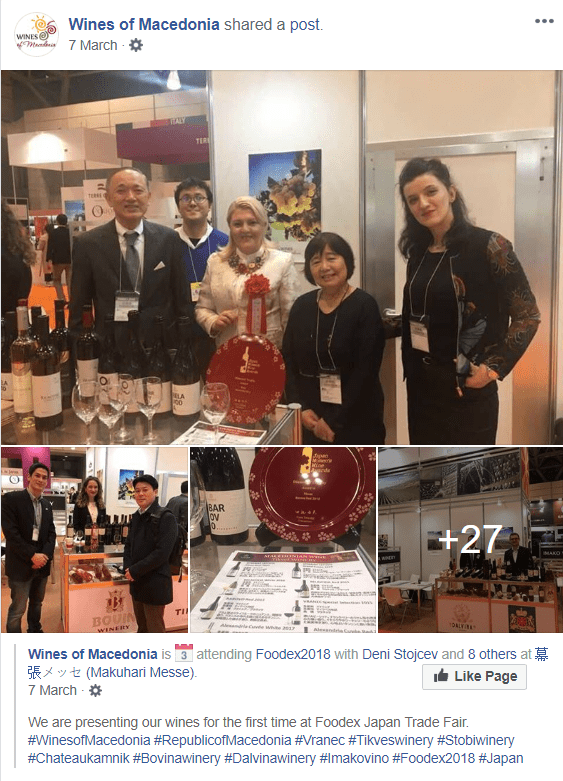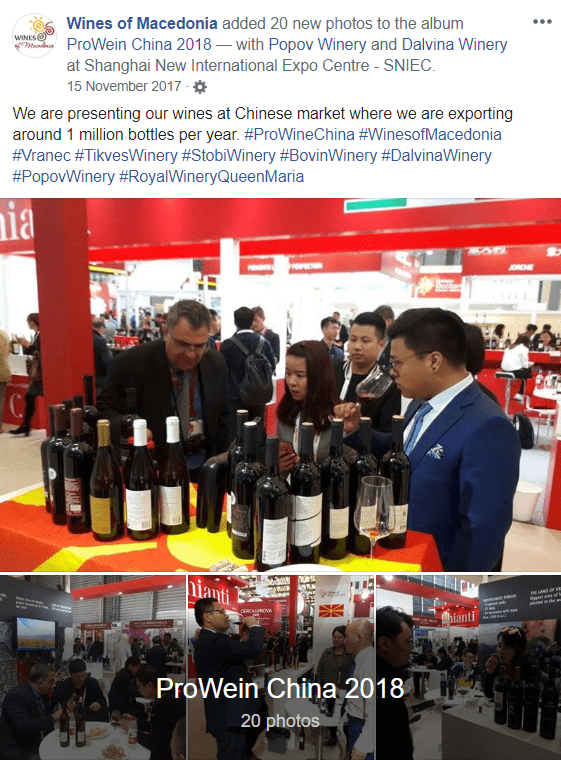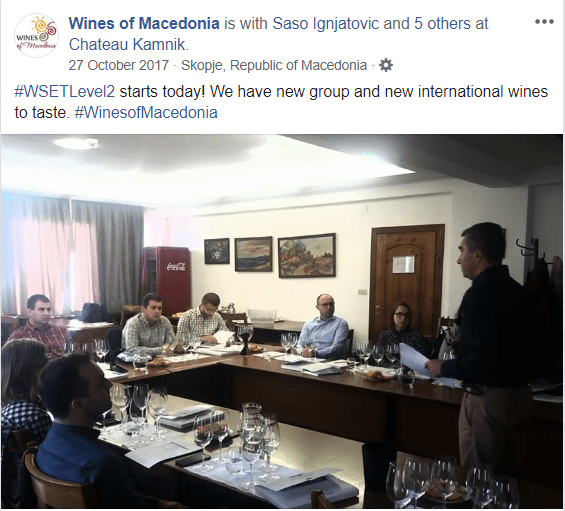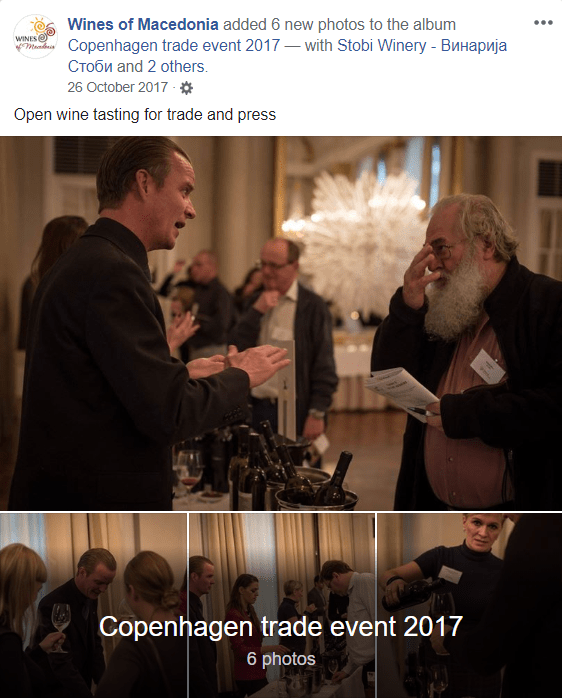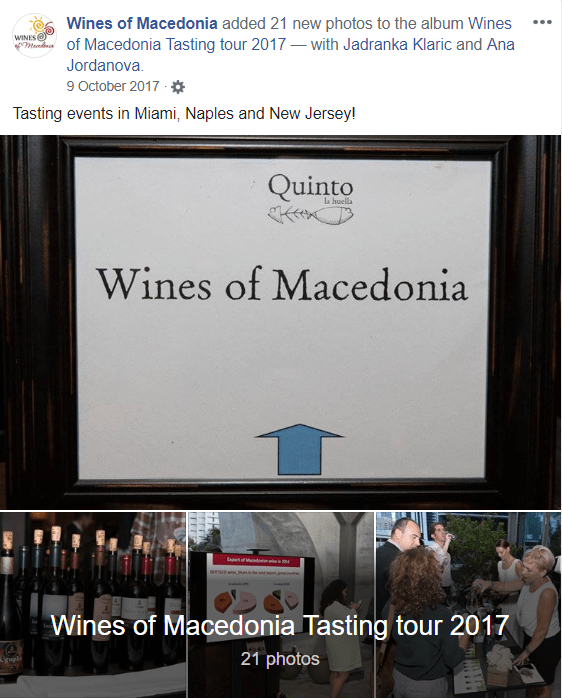Croatia Ranked 47th Most LGBT-friendly Travel Destination in World
February 28, 2019 - According to the Spartacus Gay Travel Index for 2019, Croatia is as gay-friendly as the USA!
Croatia Among Top 5 Most Popular Destinations in US Market
The popularity of Croatia only continues to grow among US travelers.
Rough Guides Names Croatia in Top 20 Most Beautiful Countries in World
Croatia feels the love of Rough Guides, one of the world's leading publishers of travel and reference guides.
Why Croatia is Not (But Could Be) a Top American Retirement Destination
November 18, 2018 - Croatia regularly features in lists as a top country to retire to for Americans, which it could be. There is just one thing stopping that reality.
It is almost 15 years since I spent an afternoon with a senior writer from International Living, the American publication which focuses on the best places to retire, invest and travel to. Some island called Hvar was coming onto the international property radar (a version of Steenie Harvey's article still exists online). We both agreed that Hvar was gorgeous and that Croatia would make an excellent retirement destination for Americans.
Croatia's best hospitals are 'in Zagreb, Slavonski Brod and Pozega'
For the 15 years that followed, I have often wondered why Croatia has not made more effort to attract wealthy retirees to retire here. Unlikely to be looking for work, often willing to contribute their skills to society, and with $$$ to spend going about their business in their twilight years, it would seem to be a win-win for all. And, as I have read over the last 15 years at regular intervals, Croatia is often named in the top 20 countries to retire to - by Forbes magazine back in 2015, for example. And in the latest bizarre article on the subject just a month ago by Moneywise - The Top Countries Where You Can Retire on US$150,000. Bizarre because Moneywise claims that the best hospitals in Croatia are located in Zagreb, Slavonski Brod and Pozega (I hear great things about the doctors and medical staff in Slavonski Brod and Pozega, less so about the equipment and facilities - and possibly not the number one destination for retiree healthcare).
A great climate, English spoken, lots of culture, great food and wine, located by the sea close to places like Italy and Germany, affordable, extremely safe and with great private healthcare.
There is only one thing preventing this potentially lucrative addition to Croatia's demographic makeup - our old friend, Croatian bureaucracy.
In the latest article on issues Americans are having with issues with gaining residency, we take a look at the real-life situation of American couples, who are retired and independently wealthy, but with no previous connection to the country, and their efforts to retire here. Before I continue, one of the themes of the comments on the two previous articles on this subject recently - I Can Bring US$2 Billion Investment, But Can't Get a Permit to Stay, and American Residence Permit Issues: Notes from the Field - was how hard it is for Croatians to get permits in the States. A good point, and well made, but there is another angle to this. Croatia is suffering huge emigration, particularly from its tax-paying younger generation. Any initiatives that can start to bring revenue in the opposite direction should be worthy of examination, especially ones which have no downsides, such as high-spending people looking to quietly live out their retirement.
Retiring to Croatia as an American - the reality
My initial interest in the issue of American (or perhaps to be more exact - it is just that Americans either seem more vocal in complaint, or are being singled out for some reason - non-EEA citizens) came from expat forums and the many interactions I have had with the expat community here. One American couple in Split, who adore life here, are very active in the community and have done great promo work with their photography and positivity to other Americans who have subsequently visited (and spent money, that's how it works), will be moving from Croatia in March next year, with great reluctance, having exhausted all possibilities. As one of them said on an expat forum this week:
My partner and I would be happy to share our rather lengthy two-year saga to put down roots here in Croatia. We have played by their rules, jumped through every hoop, tried to look for every loophole. Long story short, we are required to leave by the end of March 2019 if not sooner, for a minimum of three months. At present, there seems to be no visa category for non-EU applicants (we're Americans) who are retired, of independent means, and simply wish to live here and eventually reach the magical 5-year permanent residency mark.
Footnote: we are asking for no special favors, we would just like to make this country our adopted home, contribute to the local businesses, and enjoy this magnificent country and its people.
Retiring to Croatia: Realities and Recommendations
It didn't take long for others to concur, with an American couple in Pula nicely detailing the problem, much better than I could:
We are two more American retired couples here in Pula with exactly the same issue as described above.
Retired Americans are hoping for immediate changes and relaxation on Croatian requirements for temporary stay visa and permanent citizenship.
We feel that making it easier for this “classification”, retirees, can have a substantial multiplier effect on the Croatian economy.
There is no threat to Croatian jobs as most do not wish to work, and not only are they financially self-sufficient but health contributors to the Croatian economy.
In nearly all cases, retirees are genuinely eager to contribute to the Croatian economy and society, both with their time and substantial financial resources.
Most, however, are necessarily hesitant to make significant investments because there is no clear path to a long-term continuous stay.
Even so, many have a lot of valuable experience and knowledge to offer and are even willing to volunteer their time.
Current Croatian regulations limit American retirees, and others, to a 1-year stay, after which they must leave the country and cannot reapply until 6 months after the expiration of the previous visa.
This policy, and the resulting ramifications, create an untenable situation for any retiree looking for a long-term stable and desirable place to live. Each year the person needs to start all over again, going through the maze of bureaucracy, with no guarantee a positive outcome will result.
Without a clear and continuous path, retirees cannot plan even the most basic aspects of their lives (e.g major purchases such as a home, car, property or boat; insurance, long-term apartment lease, travel, etc.)
RECOMMENDATION:
Implement changes to the visa process to incorporate a provision for retirees that allows for a continual and uninterrupted stay. The stay could be predicated on multiple minimum requirements that any, or either, would satisfy approval, for example:
1. Purchase of property or home of X HRK min value, or
2. Deposits held in Croatian bank of X HRKmin value, or,
3. Volunteer work, or
4. Proof of Financial pension of X HRK for income,or
5. Proof of Net worth of X HRK
6. Paid housing lease, or
7. Other???
To be clear, we are non-EU (Americans), retirees, with no Croatian family connections, who are already married, so can’t marry a Croatian spouse. We are retired, so not necessarily eager to take jobs or start companies. We just want to enjoy living in this beautiful country, and contribute by paying our own way through taxes, insurance, housing, investments, entertainment, etc. Many of us are even willing to donate our time, knowledge and skills. In our situation, as I’ve described, our justification for the visa is NOT:
1. family reunification,
2. secondary school education and university-level studies,
3. scientific research,
4. humanitarian reasons,
5. work
6. work of an assigned worker)
None of these.
Our justification is under a special exception paragraph called “OTHER PURPOSES”.
When the temporary stay visa is granted under “OTHER PURPOSES” you are limited to 1 year only, after which you must leave the country and can’t reapply until 6 months after expiration.
I say all this to make the point that under these circumstances, one can never achieve the requirement of 5 years continuous stay that is required to become a permanent resident.
Therefore, not only do those in this situation need to leave every year, but there is absolutely no path for permanent residence.
Having residency permit problems but with a different issue? Contact us on This email address is being protected from spambots. You need JavaScript enabled to view it., Subject Facepalm.
Marenda! Authentic Croatia Culture Comes to Paris Louvre
November 12, 2018 - You can take the boy out of The Beautiful Croatia, but you can't take The Beautiful Croatia out of the boy.
It is an excellent idea to give Croatia a lot more visibility to the French market, which grew 8% last year, and various official heavyweights, including Prime Minister Andrej Plenkovic and Tourism Minister Gari Capelli, were on hand at the opening of the photo exhibition "Croatia, Full of Colours" in the Carrousel de Louvre shopping centre next to the famous glass pyramid of the Louvre Museum in Paris. A month-long exhibition of 26 large-format photos from photographer Davor Rostuhar, whose wider project, Croatia from Above, was published by National Geographic as its first photo monograph from Croatia. You can read more about it here.
So far, so good.
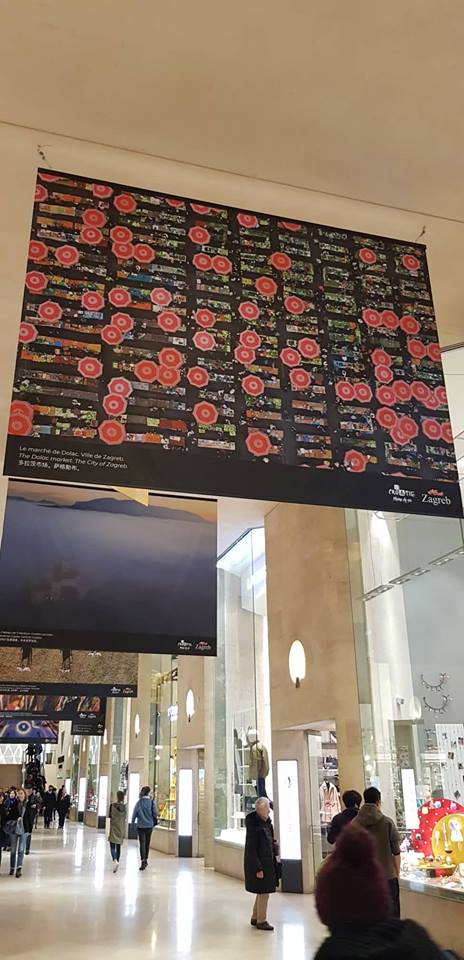
A TCN reader was in Paris last week and was rather surprised (and impressed) to find such a prominent display of Croatian tourism promotion in such a prominent spot.
And then she started to get a little confused, as each picture was branded with the logo of the Croatian National Tourist Board and the Zagreb Tourist Board. Nothing wrong with that if the photo exhibition was promoting Zagreb, but a little curious to have misty castles such as Trakoscan with the Zagreb logo. For busy shoppers seeing these incredible pictures associated with Zagreb was perhaps a little confusing.
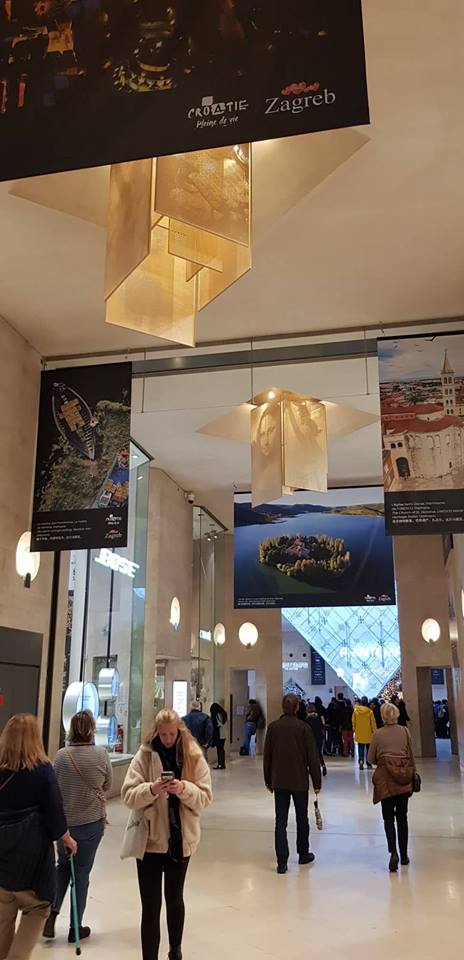
Unless the idea was to show Parisians just how spectacular the capital of Croatia was - a wonderful city with monasteries on small islands. Idyllic.
But of course, there is no point doing such an expensive or prominent promotion without giving curious Zagreb tourists of the future the chance to learn more about this incredible city. My reader was much cheered to see an information booth for people to visit. And very nicely branded too, with Luka Modric in THAT famous shirt, helping along with the branding of Croatia.
There was just one problem...
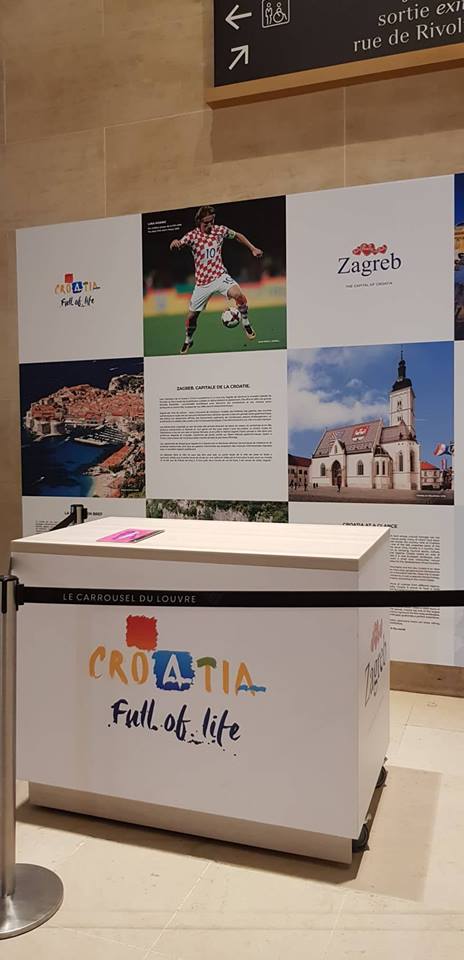
There was nobody there.
Nobody at all.
For two hours.
My reader said that at first she was angry that somebody who should have been doing their job was clearly not, but probably enjoying the delights of Paris at the taxpayer's expense, but then she smiled and realised that, in fact, this tourism promotion was presenting an important aspect of Croatian culture.
The marenda.
Marenda traditionally is a hearty snack taken by workers mid-morning after a hard day's toil in the field. Something akin to a late breakfast. It has taken on a life of its own in The Beautiful Croatia, and official bodies now have official 'marenda' times, usually 15-30 minutes, where departments in places such as the tax office will shut to the public while its officials take a well-earned coffee break after toiling away at their desks for more than two hours in the morning.
It is a curious tradition for a foreigner who comes from a culture of official institutions being open from 9 to 5, but one that I have got used to over the years in Croatia. But the maddening part in Croatia is that the advertised marenda time of 11:00 to 11:30 at the tax office can quite easily extend to 11:45 or longer, for those public officials really do have to relax after such a stressful start to the day.
And, it seems, that marenda time can stretch out to two hours on international business in places such as Paris, which must have some great cafes to choose from.
One shouldn't complain, however. The modern tourism gurus say that 'authentic experiences' are what tourist are seeking these days.
And you don't get more authentic in The Beautiful Croatia than an extended marenda. Dobar tek!
The branding of Zagreb is just one curious example in recent months where the branding is causing confusion, rather than focus, at least in my opinion. Here is another. Around 6,000 tourist industry professionals are expected to descend on Zagreb in May, 2019, for the Central European Tourism Summit. I just hope those of them looking to enjoy a little ice skating and Chrismas lights will not be too disappointed at the May sunshine, having seen the homepage of the conference website.
'I Can Bring US$2 Billion to Croatia, But Can't Even Get Permit to Stay'
November 11, 2018 - Imagine an American married a local, wanted to live in your country and bring up to 2 billion dollars in investment. Would you welcome him? Not in Croatia...
I get to meet a lot of people, both local and international, from all walks of life and all over Croatia with this job running Total Croatia News. It is a lot of fun and without doubt one of the most rewarding things I have done professionally over the last 30 years or so.
And with those connections comes a better understanding of Croatia and a cross-section of views, experiences and insights. In the last month, for example, several events and conferences I have attended in the medical tourism industry have enabled me to meet and interview the editor of the leading health tourism media in the world (Keith Pollard from IMTJ), two leading medical travel gurus (Ilan Geva and Dr Prem Jagyasi) and the CEO of business running the best medical tourism in the world, Sherene Azli, of the Malaysia Healthcare Travel Council. All here in Croatia. And the picture they paint, and the path they have outlined, shows the huge potential Croatia has to develop a lucrative niche in medical tourism.
But this is Croatia...
As we move TCN away from its initial prime focus of tourism, more contact with the business community is proving equally fascinating. That Croatia desperately needs investment is hardly a secret; that Croatia does not have a reputation of being kind to foreign investors even less so; and for foreign businessmen who are masochistic enough to actually want to live here, getting residence permits can be very frustrating indeed.
Especially, for some reason - or maybe it is just my personal experience - Americans.
I met an American recently who I will call Steve. He is happily married to a local, is in love with Croatia and its lifestyle, is extremely wealthy and is desperate to invest several million into construction projects. He has a successful track record of working on some major construction projects back in the United States, and he has sufficient confidence and interest from investors that he is confident he could bring up to 2 billion dollars into Croatia with the right projects.
And yet, some 10 years after he first came to Croatia to do two big developments on the coast back in 2008 (neither of which have moved forward in the intervening decade), Steve not only has not managed to build anything in Croatia, but he also now is experiencing problems with his residency and ability to stay in the country of his wife and one he has come to love and wants to badly to invest in.
Steve sent me an email recently after our meeting, published with permission:
In search of a residence permit and investment project in Croatia
"So, I have been doing a great deal of thinking the past 2 weeks since we met. As you know, with this drastic law change regarding residence permits, the needless frustration of the past 3 months took a tremendous health toll upon my wife and myself. Zagreb MUP is terribly worse than Split MUP and they, along with HZZO purposefully and publicly target Americans more than any other foreigner. This process has kinda sucked the life out of us, along with any enthusiasm for trying to even work here within my construction consulting business and 2 other non-connected businesses I was/am considering here in Zagreb.
Besides the personal stay permit fiasco, for over 8 years now, I have been trying to actively build a thriving business for myself here. Colleagues and clients of mine have the resources to invest in projects up to 2 Bln USD. But as you know and we discussed.....the government here is just too negative, close-minded, short-sighted and non-proactive. The large projects here simply will never commence despite fancy press conferences (Pasman) and the 2 in Dubrovnik will never be built.... as you know the Dubrovnik Golf project is suing the government for 500 mln euros, and also I remember that comment in one of your blogs attributed to the process in Croatia by a Russian billionaire. (Editor note - a Russian billionaire with lots of investment experience in the region said that there was corruption all over the region, but the only difference was that in Croatia, you pay the politicians and they do nothing, and then four years later, you have to start again).
I recently remembered a couple things here said to me when I originally moved here 10 years ago. "Preko veze" (through connections) of course. Well, that is and isn't true. When I first arrived I immediately contacted the large commercial global brokerage firms as I have had lengthy successful relationships with their namesake sister firms back in the USA. Remarkably they don't seem to value existing relationships with clients from their sister firms abroad. Same with the architects here.
The other is someone told me in the beginning "never send a written racun (invoice)". Well. I only conduct business in a correct, professional manner and that is what I did. Well, as you must know, Croatia maybe be the only country in the world that collects taxes (VAT) on contracts/racuns that were never paid. So, I paid approx 500,000 kns (25%) in VAT my first year here. And although have FINA court judgments, cannot collect because the " developers" have many blocked accounts and the government won't help either.....and they have more cash than God. Which brings up the other statement told to me by many Croatians "never, ever....do business with a Croatian!".
Well, that made no sense to me but here we are over 8 years later. I am not bitter nor have any regrets....because I have done things the right way.....morally, ethically and with the proper motives.
That said, I am a realist and have learned many lessons here....but am also an eternal optimist. I am always open to meeting new people, new faces and networking. One never knows the outcome or future potential, correct? But gone are the days of my jumping thru hoops prematurely. Again, knowing the proper way to conduct business I always responded with detailed packages for RFQ's. Unfortunately this has led to a couple bad situations here as well despite the usage of non-disclosure and non-compete agreements....specifically with one "Croatian gentleman" (I say that loosely.. lol) who alleges to provide similar services as I, was appreciating included in my project teams....then went behind my back after I got the "foot in the door" ....to unethically steal clients and business from me. Oh well, lessons learned."
I do like living here (as long as the government doesn't change the laws and regs again for the worse...lol) but maybe it is time to live here in semi-retirement....
****
Do you have an investment in Croatia story (positive or negative) which would be interesting to feature on TCN, Or a residence permit tale of woe or joy? Contact us on news@total-croatia-news with full details, Subject title - Facepalm.
Lessons from Macedonia: How Croatia Can Learn How to Market Wine
November 7, 2018 - Croatia is the home of the original Zinfandel, home to 130 indigenous varieties of outstanding quality, but with no idea how to promote its wines on the international stage. Some lessons from Macedonia.
Although I once spent five years in the wine industry running a small family business in the UK with my father, I am a beer man these days. Perhaps that was the reason that it took me so long to realise Croatia had an incredible wine story that was not being told. In fact, I remember when I first moved into the small house in the old town of Jelsa, a very friendly bearded man who looked a little like Father Christmas knocked on the door and introduced himself in French, before giving me a welcome bottle of rose and telling me he was the next door neighbour. It was several years until I realised that Andro Tomic was one of the most celebrated winemakers in Croatia.
Slowly I started to learn what I had been missing. The island of Hvar had an incredible wine story dating back 2,400 years to the arrival of the Ancient Greeks in 384 BC, and the vines and olive trees they brought with them and planted in what became the UNESCO World Heritage Site, the Stari Grad Plain, are testament to part of that tradition. But Croatia, it seemed, was also the original home of Zinfandel - a fact proven by DNA matching at the University of Davis back in 2001 - and it was a Croat who rocked the snobby French wine establishment back in 1976 at the so-called Judgement of Paris.
I was not alone in my ignorance of the excellence of Croatian wine. The late, great Anthony Bourdain was totally blown away by the Croatian food and wine story when he visited six years ago, and his No Reservations episode on the Travel Channel remains, for me at least, one of the finest pieces of Croatian tourism in history.
A promotion which has not been capitalised on, for six years later, the rich potential of Croatia's food and wine tourism remains in its infancy.
Interest in, and awareness of, Croatian wine is growing. Indeed, among American travellers, 'wineries and vineyards' was the number 5 thing of interest in a recent major survey of tourism interest in Croatia within the US market. Great news, especially as Croatia has such a strong wine offer.
So where is the information for them to find out more? Where is the official website telling the world about Croatian wine?
It doesn't exist.
I was quite shocked when I learned this a few years ago, and I saw that there was an opportunity for TCN to get into the Croatian wine information market. I asked the tourism gurus and the Chamber of Commerce for help and financial support to put something together. None was forthcoming. But there must be a database of winemakers, surely? If I could get that, I could easily put them on an interactive map, which would help people find winemakers directly.
There WAS a database.
Kind of.
After an epic struggle, the Chamber of Commerce finally sent me their database of winemakers. I was beyond excited. I could quickly put this comprehensive database into map form, and we would have the first ever map of Croatian winemakers.
And then I opened the database.
Just 235 winemakers on the list (compared to more than 500 on the subsequent map I built on Total Croatia Wine).
195 of these 235 had no website details.
106 had no email address.
72 had no phone number.
All businesses in Croatia must pay a minimum of 500 kuna a year to the Chamber of Commerce. Would it be too much to expect to get at least a listing on a database with some basic contact details?
And so Total Croatia Wine was born. In addition to a map of all the winemakers, we created individual wine maps for various regions, a section on the main indigenous grapes of Croatia, profiles of some of the main winemakers and so on. We even started shipping Croatian wine to customers all over the EU, the United States and Japan. I was surprised to learn that, despite being such an important wine region, Dalmatia had no wine road. I asked the Ministry of Tourism why and received this rather spectacular response:
As far as wine roads are concerned, there is a number of websites where wine roads in Croatia can be found, including in Dalmatia, such as the Biokovo Wine Road, the Vis Road, the Brač wine road, etc.
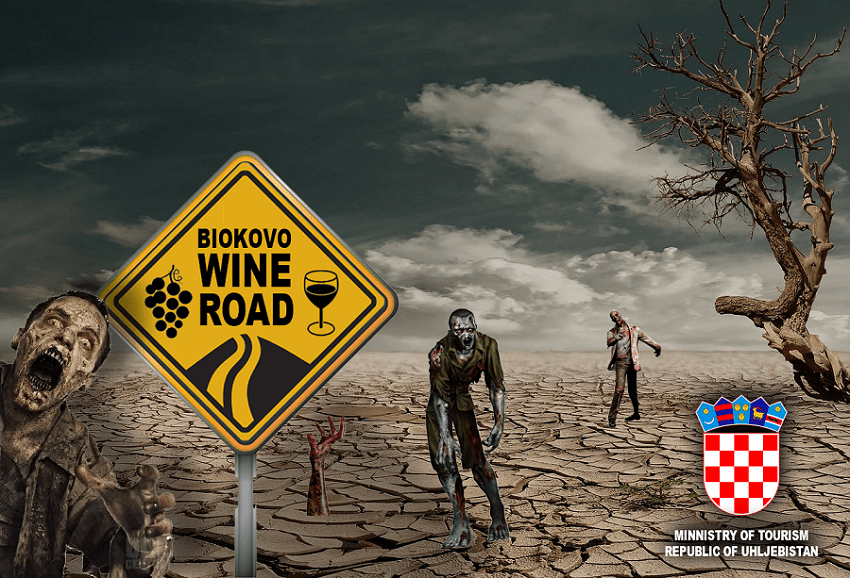
The Biokovo Wine Road? This was a new wine road to me and certainly not one on my Total Croatia Wine map. It turned out that not only had I never heard of it, but neither had anyone else in the wine industry in Croatia.
It doesn't exist. And while there may be some grapes grown here and there, there are no winemakers, no tourism wine tasting opportunities. The Ministry of Tourism had managed to create something rather unique - a wine road with no grapes. I asked for more details about this Biokovo phenomenon, a link to just one of those 'number of websites' - I am still waiting for the answer.
Wineries and vineyards is the number 5 thing of interest for American tourists looking to visit Croatia. And nobody can officially tell you where the wine roads are. I turned to the Croatian National Tourist Board for help. Did they have a map of wineroads in Croatia? They didn't, but they were very helpful in trying to get the information:
Please find attached the list of wineroads in Croatia which we have collected by county tourist boards. We are still waiting for few replies so we can send you final list when we receive the missing replies.
At least now there is some information available, but only because a journalist requested it.
"Why is this region so crap at promoting wine?" I asked a respected international wine professional recently.
"This region, or Croatia?" came the reply. "Croatia is a special case. But if you want to see how it is done, check out how Macedonia is doing it with their Wines of Macedonia association. And the website info is just one part of it. Macedonia is kicking some major ass with its wine presence all over the world and trade fairs and promotions. Croatia is nowhere to be seen. Perhaps a few individual Croatian producers will come, but they are often under the umbrella of their country agent. But Macedonia? They are united, present together, with winemakers contributing their costs according to the number of hectolitres they produce."
Wow! Meet the Wines of Macedonia website!
Macedonia exports 85% of its wines to 38 countries, a business worth 50 million euro each year. And - this is priceless - can you guess which country imports the most Macedonian wine in the world?
Yup - Croatia! Not only can Croatia not tell the world about its wines, or organise its winemakers to market them internationally, but it is also the leading buyer of wines from the neighbours.
To quote from the website:
Wines of Macedonia (WoM) is an organization that unifies the work of Macedonian wine producers, committed to promoting the quality and image of Macedonian wine throughout the world.
The Association is established in April 2010 as an NGO to represent common interests of its members as well as:
• provide strategic support to the Macedonian wine sector including developing the wine and viticulture industry in Republic of Macedonia
• increase export of both bottled and bulk wines
• build an umbrella recognition of Macedonian wines on the regional and international markets
• advocate in front of Government of Republic of Macedonia and other relevant institutions.
What does Croatia have in comparison?
And to finish, a selection of photos from the Wines of Macedonia Facebook page, showing how active they have been all over the world in the last year.
Is it really too much to expect for our tourism and commercial geniuses to come up with something similar?
Congratulations to Macedonia - a wonderful example in how to promote your wine industry.
To learn more about wines from Macedonia, visit the Wines of Macedonia website.
If you are looking to learn more about wines from Croatia, I am really not sure what to suggest, but while I have a think, here is the TCN wine website.
The Growing South African Interest in Relocating to Croatia
November 6, 2018 - Interest in Croatia from South Africa is growing. A short mini-series looking at various South African experiences in the Adriatic region - why is Croatia coming on the radar?
One of the things I love about running Total Croatia News is that I get to travel all over the country meeting people from all walks of life. Sometimes chance conversations on totally unrelated topics bring together a strand or a trend that neither I, nor anyone else, had contemplated. One particular example of this involves the growing interest in Croatia from South Africans. And not just - as might be first though -white South Africans.
The strand started earlier this years over a beer with a friend in Varazdin, who commented that a growing number of South Africans were looking at buying (some with success) property in northern Croatia. Another drink with a South African businessman on Korcula, some messaging with a South African friend with a house on Hvar, and then posting on various expat groups to find out the level of South African presence and interest in Croatia. I was surprised not only by the level of interest, but also in the reasons for that interest. In an era of mass emigration, any trend of people looking to move to Croatia is interesting to investigate, and so a small series of articles on South African experiences in Croatia will appear over the next few weeks. I am grateful to South African Hvarophile Beatrix Roux for kicking off the series on South Africans in Croatia with the following overview below.

Every home has its own problems and if you are a country… well the problems can include anything from political instability, recession, poor healthcare and the list can go on forever. South Africa has surely been in the news over the years for all the wrong reasons and just when we said goodbye to apartheid’s mafia with a sigh of relief and everybody sang ‘kumbaja’ in harmony, trouble stirred again – in the form of the Zuma era.
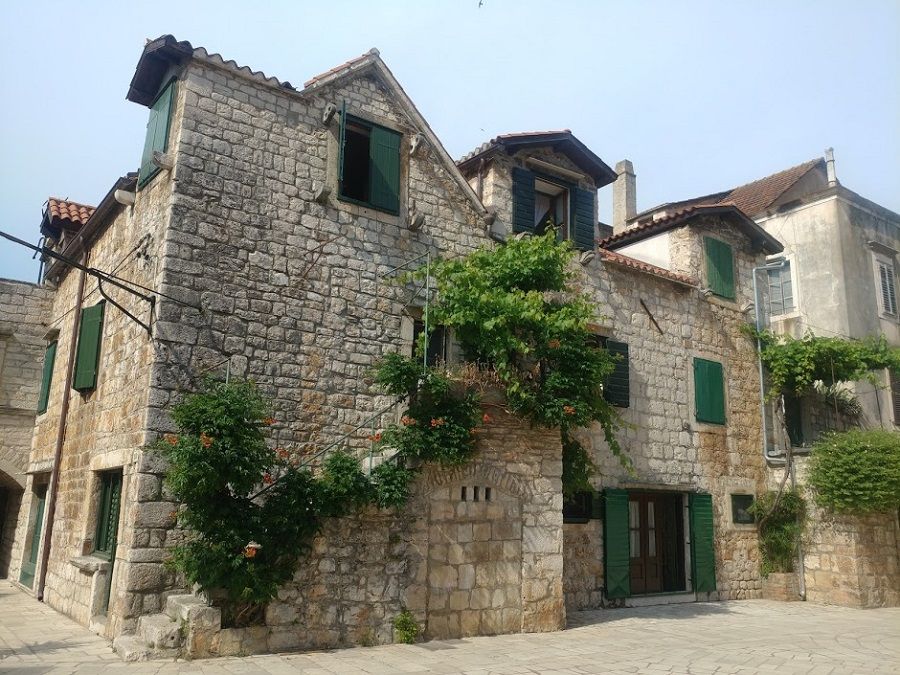
To explain the Jacob Zuma era of looting, fraud and underhand manoeuvres in state departments such as the South African Revenue department, South Africa Railway system, mining industry etc. would take 50 articles. One of the best online newspapers that did a splendid job was The Daily Maverick – not only did they report objectively but was also instrumental in exposing the whole shenanigans with the Gupta brothers. South Africa almost belonged to three brothers living in Dubai!
For eight years this played havoc with the South African Rand and people become more and more disheartened with the slow deterioration of a country so beautiful but so divided. Our brand new president, Cyril Ramaposa, brought a certain amount of relief, but the ruling ANC party is so divided and riddled with thugs that he is barely able to put plugs in all the holes of our democracy. The crime rate in South Africa is another tale of sorrow, and it is escalating daily.
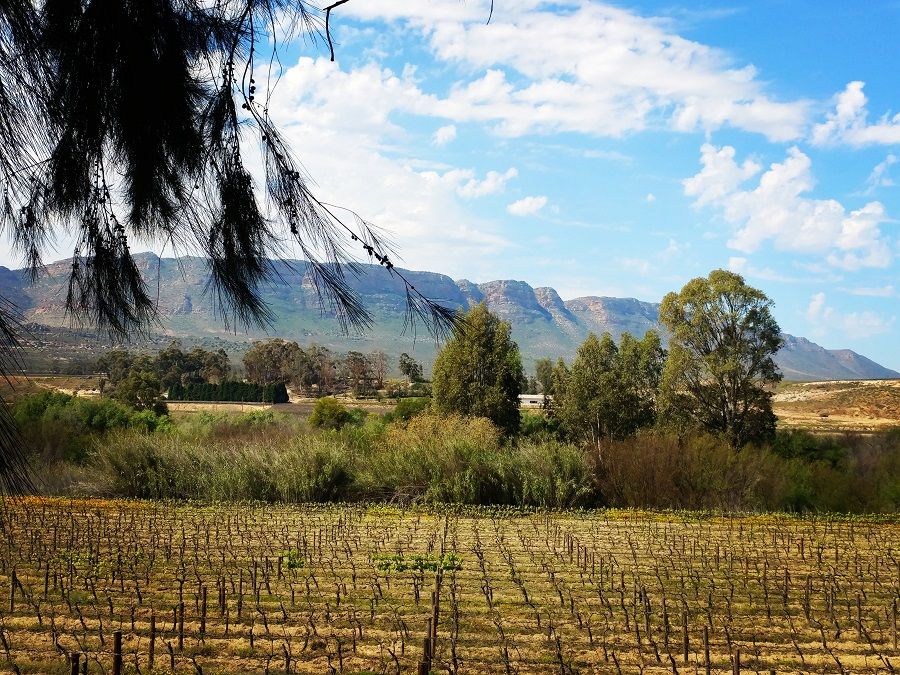
To be mugged in a street or hijacked at a traffic light has become part of everyday activities. Gang violence has also escalated immensely in Cape Town and although it is confined to certain neighbourhoods, it impacts people’s lives on so many levels.
Why do I mention all these tales of dread and discomfort?
South Africans are seeing a country caught in the web of political games and crime, and more people are looking at other countries to buy property with the specific intent of obtaining EU permanent residency. The Rand/ Euro exchange rate hiccups with every poor political decision, and people want to make sure their money is worth more in the future. A sort of insurance policy in case of emergency. Portugal, Malta and Slovenia are among the most popular due to their favourable investment policies.
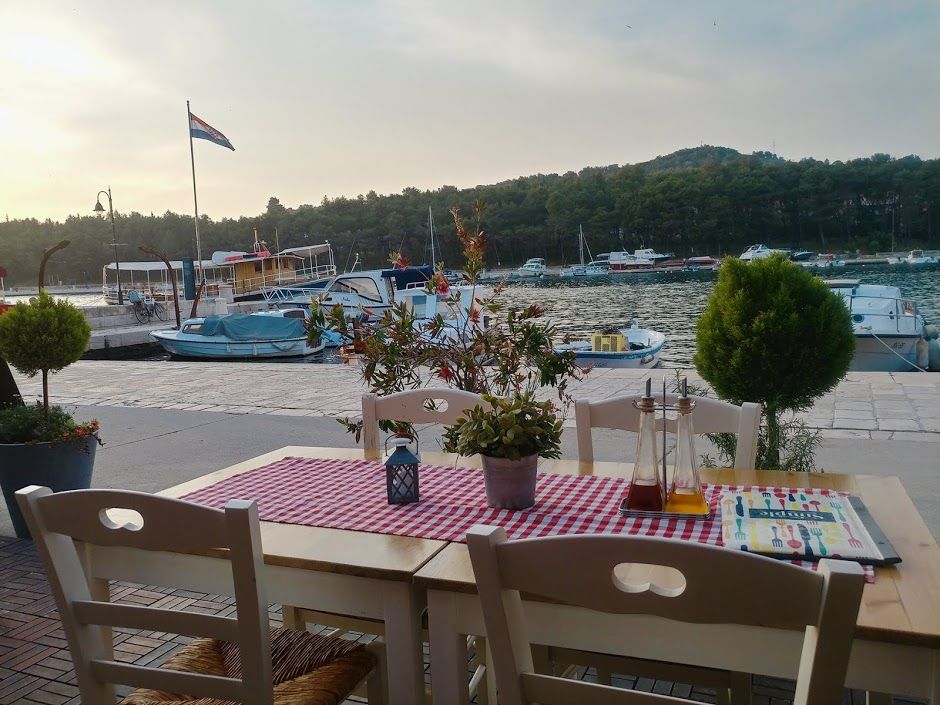
Purely on an emotional decision, with no political worries in mind I visited Stari Grad on the island of Hvar 15 years ago and stayed for 3 months. Two years later I was offered the chance to buy a friend’s house in the old historic part of town. An opportunity I grabbed with both hands. I have never looked back. Over the years so many South Africans have visited our house in Croatia and the most frequent questions by all SA visitors: How much does it cost to buy property in Croatia/ How did the buying process work/ Can you please give me the name of a property agency.
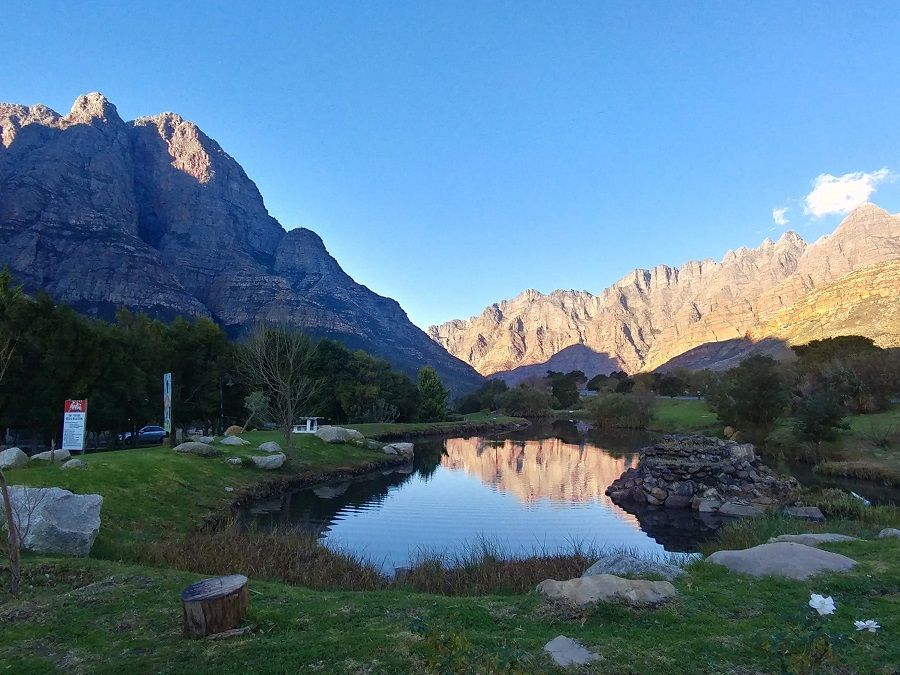
Why (besides the obvious) are South Africans interested in Croatia as a second home country?
One of the safest countries in the world. My favourite story to tell people is the fact that the police station on the island work office hours. If you have never had to lock your car door every time you get in or look nervously around when you have to stop at a red light you will not understand the importance of this.
Rand/ Kuna exchange rate quite good compared to the Rand/Euro or Pound.
There is the anticipation of Croatia getting Schengen status within the next few years (already EU status). South Africans, like the Australians love to travel, but the EU visa nightmares are endless and expensive. At the moment permanent residency in Croatia is like finding the Holy Grail, but hopefully it will get better in the near future.
Investment growth in Croatia is much better. The value of my house in Stari Grad doubled in 13 years due to the Rand/Euro situation.
South Africans are spoilt with one of the best lifestyles in the world due to beautiful landscapes and excellent food quality. They can duplicate that in Croatia.
Slower pace of life in Croatia. A lot of people are looking at a more relaxed lifestyle and Croatia offers all of that and more.
Excellent opportunities for entrepreneurs in Croatia (if you can get past the red tape). As a previously Socialistic country Croatians do not always think like entrepreneurs and often miss all the wonderful opportunities.
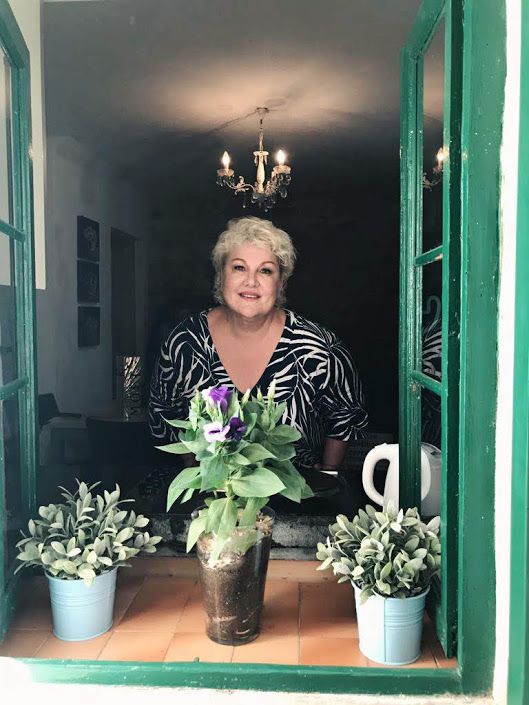
Wonderful farming opportunities for South Africans – a nation of farmers. An increase of farm murders in SA make farmers look at other countries of opportunities. Zambia is popular due to the government subsidizing new farmers and tax breaks for exporting. If Croatia wants to save their farming industry – send a delegation to Zambia for advice.
The kindness and genuine friendship Croatians offer to me and my family as well as any friends that have visited always surprise us. My neighbours in Stari Grad see my house as an extension of their responsibilities when I am not there and will guard my property like their own. It is common to find a bunch of lavender in your windowsill or a bowl of fresh figs on your doorstep on a weekly basis.
Many thanks Beatrix, who used to write occasionally for Total Hvar back in the early days - you can read her Stari Grad property buying experience here.
If you are South African and would like to contribute to the South African experience in Croatia, contact us on This email address is being protected from spambots. You need JavaScript enabled to view it.
Croatia National Team Celebrates Win with More Song, and Dancing on Tables (Video)
What. A. Night.

